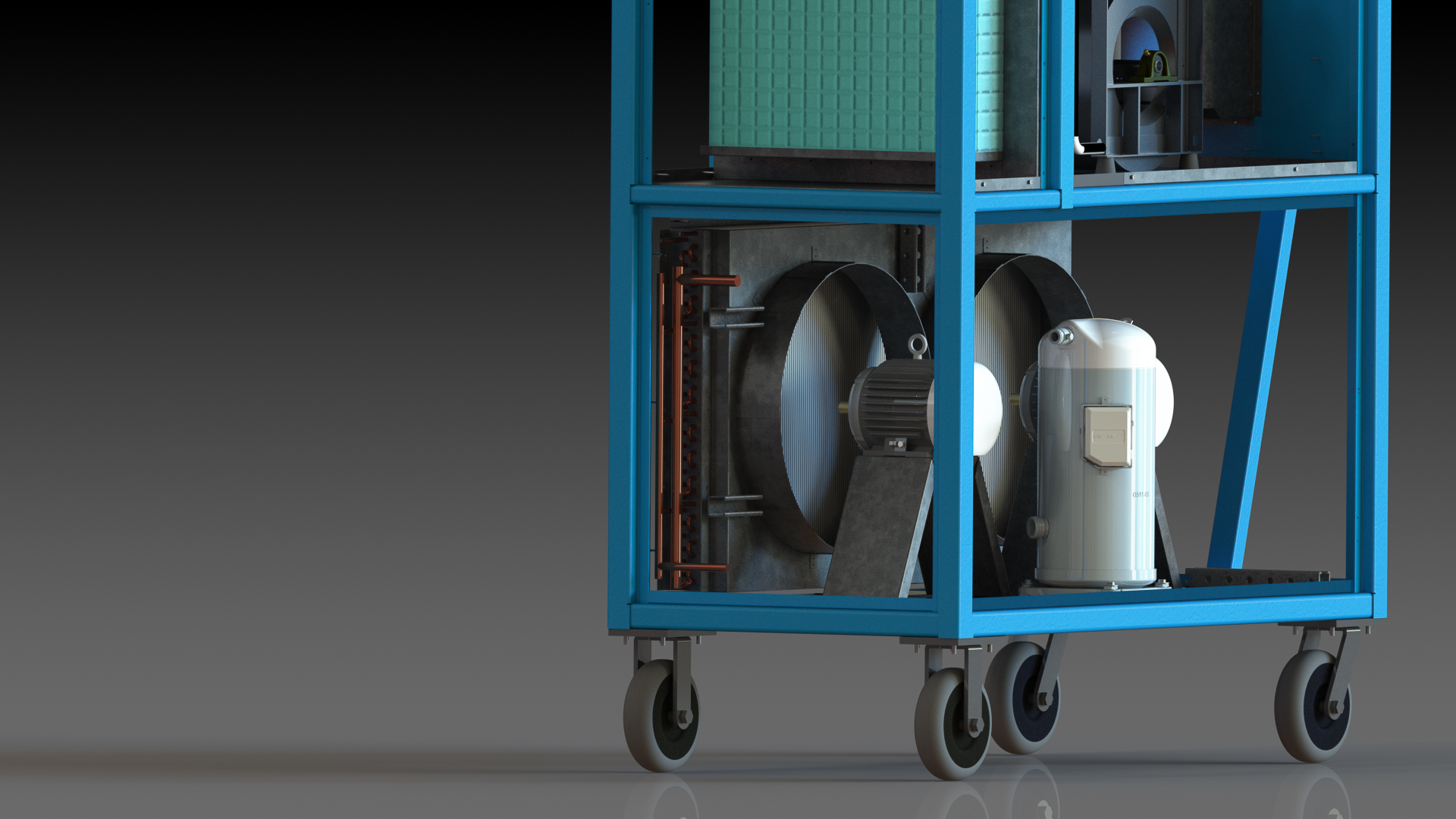Many of Scientific Systems’ HVAC products are classified as “explosion-proof.” But what does explosion-proof mean, and how will you know you need an explosion-proof unit for your workspace?
What Does Explosion-Proof Actually Mean?
According to the National Electrical Code (NEC), explosion-proof refers to equipment capable of containing an explosion. An explosion occurs when hazardous material, such as flammable gasses or combustible dust particles, enters a system and ignites a fire or explosion inside of it.
The NEC published guidelines categorizing hazardous work locations into classes, divisions, and zones. Your building or facility needs to be rated before you know what kind of explosion-proof unit is required for your operations. If you need help figuring out what type of unit you need for your facility, contact Scientific Systems and let us know your requirements so we can design and craft a custom unit for your business.
What are Classes, Groups, and Divisions?
Now that you know what explosion-proof means, you need to understand classes, groups, and divisions.
Classes
The class determines the properties of hazardous materials present in any given environment. Hazardous materials are categorized into three groups:
- Class I – environments where flammable gases or vapors are present in the air.
- Class II – environments where combustible dust could cause a fire or explosion hazard.
- Class III – environments where ignitable fibers or flyings are present. These materials may not be sufficient to cause an explosion or fire.
Groups
The groups classify the type of potentially explosive material in a location. Groups A – D will fall under Class I, while Groups E – G will be categorized under Class II. In Class I, Group A is considered the most easily ignited material, while Group D is the least ignitable.
- Group A – environments containing acetylene.
- Group B – environments containing hydrogen.
- Group C – environments containing ethylene.
- Group D – environments containing propane.
- Group E – environments containing metallic dust.
- Group F – environments containing coal dust.
- Group G – environments containing grain dust.
Divisions
The division classification focuses on the probability of potentially hazardous material in an environment in high enough concentrations to cause an explosion. The two main divisions are:
- Division 1 – Higher chance of causing an explosive or combustible mixture as hazardous materials constantly remain in the atmosphere and systems at all times. This can occur when hazardous materials fly around the workspace due to open containers.
- Division 2 – Lower probability of creating an ignition or explosion. Hazardous materials are generated only when equipment is operated under adverse conditions or a problem with the system occurs, like a leak or a critical system failure.
If you believe you need an explosion-proof system or know your industry relies on explosion-proof units, contact Scientific Systems for safe and dependable explosion-proof HVAC products.
Why Choose Scientific Systems for Explosion-Proof Units
With your newfound understanding of what explosion-proof means and how explosion-proof units benefit business operations, ask yourself this question, do I need an explosion-proof unit? If the answer is yes, and you don’t have one, contact us immediately.
Not only do we have 50 years of experience in providing high-quality HVAC solutions, but we also meet NEC requirements and strive to exceed your expectations. Avoid an incident at your facility with a custom explosion-proof unit when you call 225-926-6950 today.


